You’ve probably stumbled across the term ‘SEO’ more times than you can count, right?
SEO or Search Engine Optimization is a big deal in blogging and content creation worlds.

Almost every digital marketing guide or blogging manual you pick up will have dedicated to this intricate, sometimes convoluted, concept.
With words like ‘backlinks‘, ‘domain authority (DA)‘, ‘meta-tags‘, ‘keyword density‘, and a myriad of other technical jargon it’s easy to buy into the hype/get overwhelmed as a content creator.
But as it turns out, SEO is mostly useless.
SEO is often portrayed as this massive, intimidating monolith that requires years of study to master, a code that only the digital savviest among us can crack.
But this is just to make you buy expensive consulting, tools, or other SEO-related stuff.
In reality, SEO has nothing to do with optimizing for search engines.
It’s all about understanding your audience, identifying the problems they’re facing, and offering them effective solutions through your content.
Yes, it’s as simple as that.
In this post, we’re going to do away with the SEO myths, stripping it down to its bare essentials, and revealing the undeniable truth of why SEO doesn’t work the way we know it.
Make sure to read my “SEO-Free” SEO strategy I’ve used to build a bunch of profitable blogs!
SEO Doesn’t Work: Here’s Why
Alright, before we delve deeper into the nitty-gritty of SEO, let’s have a little chat about how search engines actually work.
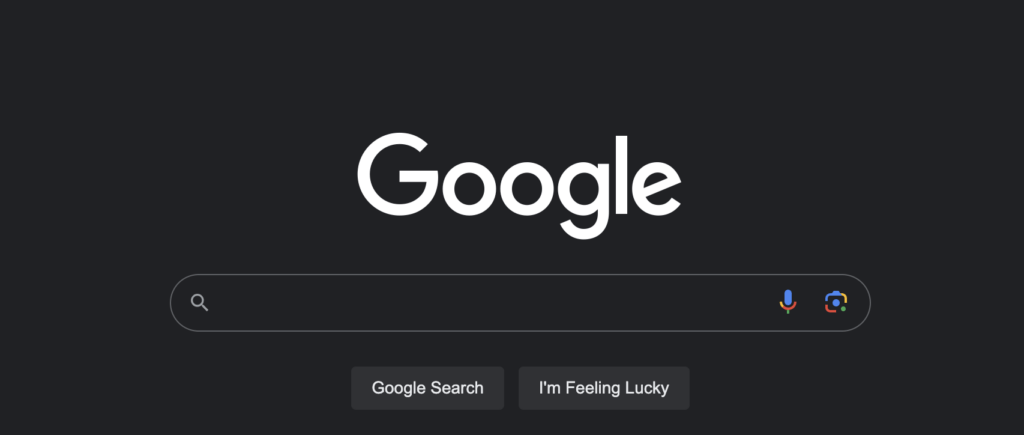
Search engines are like efficient librarians of the digital world. Their sole job is to present you with the most relevant, useful, and engaging content related to your query.
Over the years, search engines have become good at this.
They’ve developed highly sophisticated algorithms that can accurately detect if a piece of content is worth recommending to a reader or not.
If you’ve been led to believe that all it takes to trick these algorithms is a keyword placement, backlinks, or some other ‘magic SEO trick’, well, I hate to break it to you, but that’s just not how it works anymore.
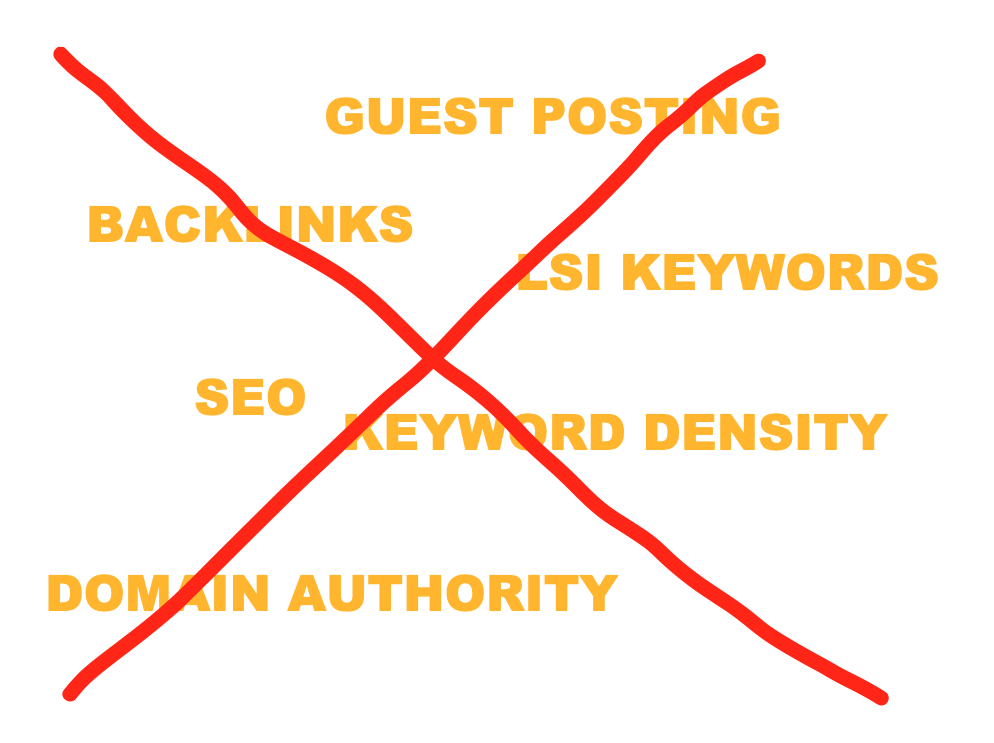
If search engines were that easy to fool, everyone would be hacking their way to the top of the search results.
But that’s not what we see, is it?
Search engines are actively fighting against these black hat strategies.
Their ultimate goal isn’t to let websites cheat their way to the top. Instead, the aim is to provide users with the best possible results for their queries.
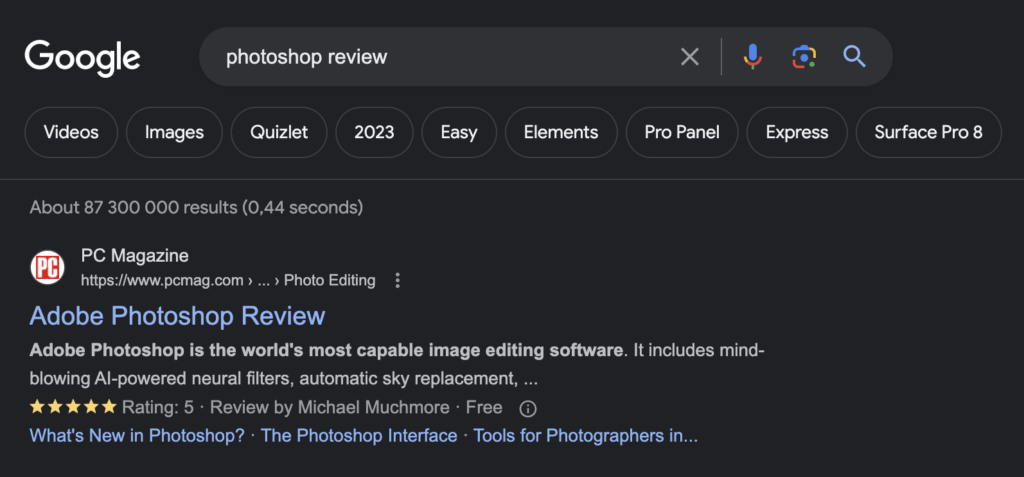
Let’s put it this way: Search engines don’t want websites to optimize for the sake of gaming the system.
They want websites to optimize for the sake of offering genuine value to the users.
Anything that doesn’t serve this purpose? Well, it’s likely to be more of a hindrance than a help.
This is the real story behind the scenes. Not as dramatic as the world of keyword stuffing or dubious link-building might suggest, but much more authentic and beneficial for all parties involved!
What to Do Instead of SEO?
Now that we’ve debunked the SEO trickery, let’s turn our attention to what really matters: providing value.
This is the cornerstone of all SEO. Ironically, this has nothing to do with optimizing search engines. Instead, it’s all about optimizing the content for your readers to be as helpful as possible.
Let’s start with an example.
Let’s say you’re running a Tennis business and your goal is to appear high on the search results whenever someone types in “Tennis Course”.

The idea is to drive free traffic from search engines to your landing page and get customers without having to invest in paid ads.
Sounds great, right? But how do you get there? What did these sites do to get there?
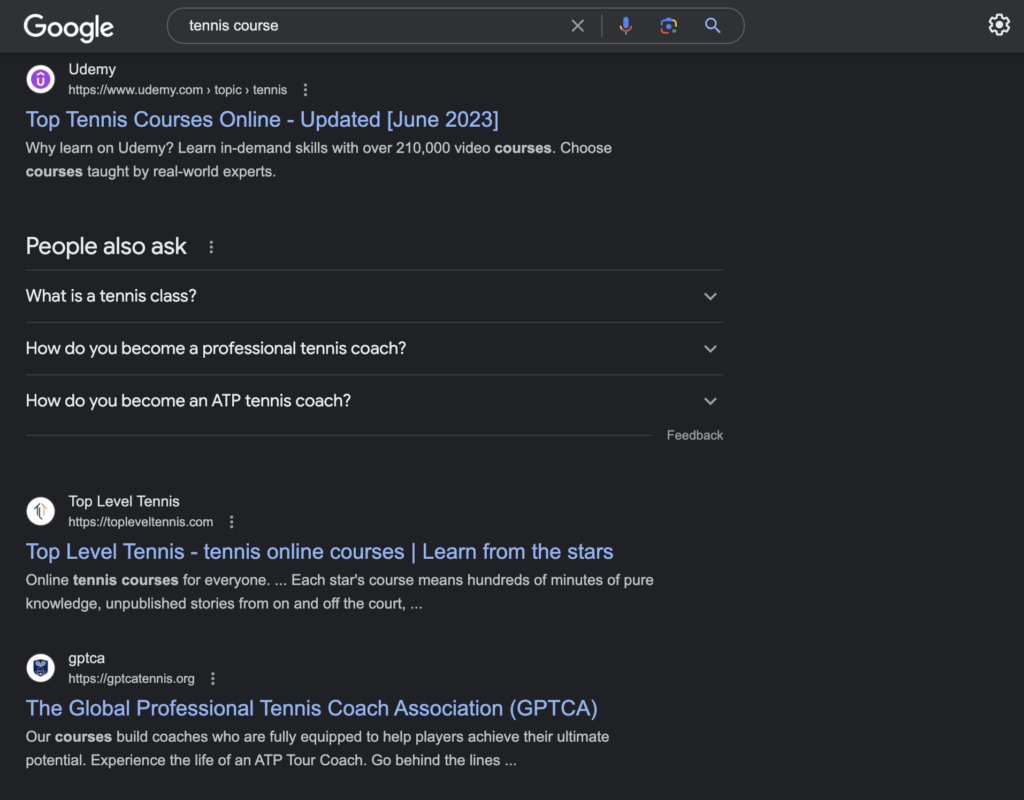
The reason these pages appear high on Google is because Google trusts these sites.
But how on earth do you build trust then?
The answer is simpler than you might think: write, write, and write some more!
And not just any content, but valuable, unique, and in-depth solutions to the tennis peoples’ problems.
We’re talking “how-to” guides, deep dives into tennis techniques, analyses of professional games, equipment reviews, and so much more. Anything and everything that could possibly relate to tennis should be on that website.
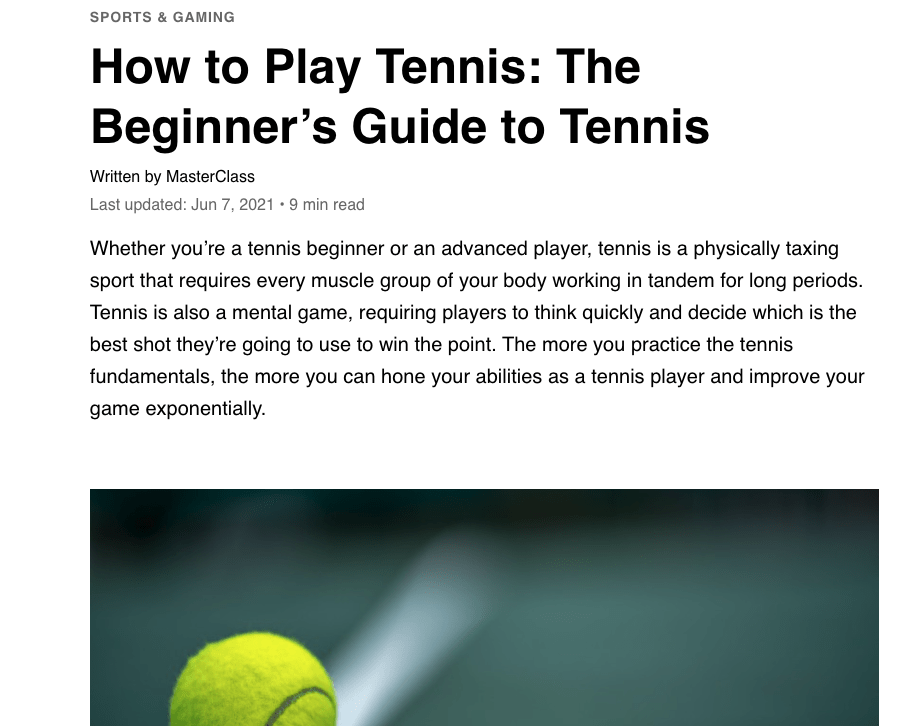
Only once the site has covered every nook and cranny of the tennis world, can it start building trust with Google and other search engines.
The aim is to create a situation where Google has no choice but to acknowledge the website’s authority on all things tennis.
Only then might it consider ranking the “Tennis Course” landing page highly in its search results.
Sadly, there’s no magic wand to speed up this process—no matter how hard the SEO people wanted to.
Finding success on search engines isn’t a sprint; it’s a marathon. It can easily take years, especially for highly competitive search terms.
And it’s not just about the quantity of content, but also the quality.
Every single blog post should strive to be the best piece of content on its specific topic, bar none. That means every article must be well-researched, thoughtfully written, and packed full of information.
The goal is to create content so good, so engaging, and so comprehensive, that your visitors wouldn’t even dream of going anywhere else.
This is how you truly win at SEO and build trust not just with the search engines, but more importantly, with your visitors. Because in the end, it’s their trust that truly counts.
💡 To take home, SEO is all about solving common niche-specific pain points with in-depth blog posts.
When Does SEO Matter?
Notice that SEO is a term that search engines themselves use.
However, its interpretation might be quite different from what most bloggers or website owners have in mind.
Firstly, let’s get one thing straight: if you’re coding your website from scratch (which very few do), you absolutely need to worry about SEO.

But in this case, SEO is more about the technical foundations of your website, rather than strategic content creation.
We’re talking site structure, sitemaps, robot.txt files, server delays and locations, image compression, and a whole host of other factors that Google takes into account when assessing the site.
These factors are important because they ensure that your site can be easily navigated and understood, not just by users, but also by search engines.
A website that’s difficult for search engines to crawl or interpret is unlikely to rank well, no matter how fantastic its content might be.
But here’s the good news: the vast majority of people aren’t coding their websites from scratch as they shouldn’t.
These days, 99.9% of the time it’s simply better to use pre-made templates or solutions (like WordPress, Wix, or Squarespace).
These come with these technical SEO features built-in.
If that’s the route you’ve taken, you can rest easy knowing that the majority of the technical SEO is already taken care of for you.
Wrapping Up
Don’t focus on search engines. Write for humans. That’s what Google wants you to do.
All the “results” you see online are just trying to sell you pricey courses or software.
